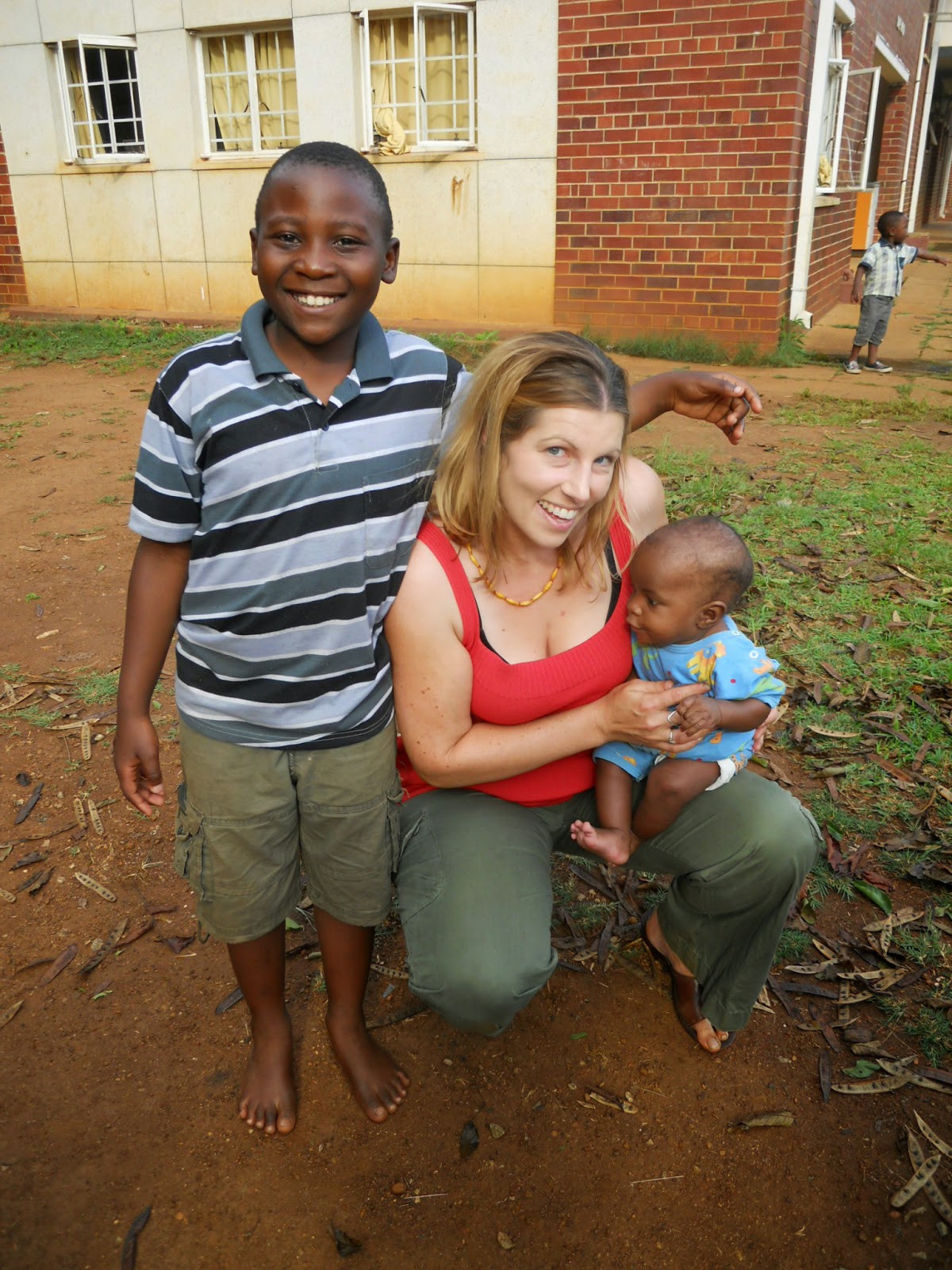One of our little guy’s favorite activities in Zim has been something he calls, “Getting babies.”
Whenever we arrived at this particular city orphanage, after being mauled by too many children to count, Jonas and I always wound our way inside to find the babies hidden in the recesses of buildings. The babies of this particular orphanage lie in their beds, untouched, for most of the day. Well, I try not to think about it. But let’s be honest. Most of the week. Most of the month. Most of their first few years. If they are lucky, their diapers are changed at most twice a day. For many of them it is the only interaction they will get. The stench of old urine and diarrhea is gagging at best.


Children flock around me, excited to watch and help. Some just want to touch the rubber gloves I have brought.


(Above) are two of my many favorites: Pretty, and Fortunate. My son Jonas and I always brought our own supplies. Each visit we changed, clothed, and carried as many babies outside to be held as we could. The orphanage children loved passing the babies about once the babies were cleaned and outside.

Above is Emmanuel and Mary, with Martin in tow. Like Mary, many of the girls put the babies in berikas on their backs, pretending to be mothers themselves.

Above, Martin, who is now actually a three year
old but at the time could barely sit up, is misguidedly being pushed on the swings by some very well-intended
children...
Meet Tendai, the first baby I
ever met at the orphanage. When I first started working with Tendai, his
fists and arms were clenched to his body and his legs would not move from the
fetal position except when stretched. This was the result of never
leaving his crib during his first year.
(Above, I hold Tendai with one of my favorite little guys, whose journey I followed through two orphanages, Lovie.)


When Tendai and I first met,
he did not reach for things or smile, and - like all of the babies at his
particular orphanage- he was silent. They never cry, which I have come to
conclusion must be because no one ever responded to their crying and now they
do not bother. Though some of them probably can, I have never heard a
child here speak before three.


Tendai was my special
project. I knew absolutely nothing about how to do proper baby-massage,
but whenever I came to the orphanage I found him first, working on moving his
legs and arms as much as possible, stretching him and forcing his hands open.
My long term goal was initially to get Tendai to smile at me someday.
If you know me at all, you know that only since having my own child, I have a weird, terrible ability to cry at anything. Anytime. For any reason. You can imagine how much I cried the day Tendai looked up at me and smiled a cooing bubbly smile. It took until Tendai was two years old.
If you know me at all, you know that only since having my own child, I have a weird, terrible ability to cry at anything. Anytime. For any reason. You can imagine how much I cried the day Tendai looked up at me and smiled a cooing bubbly smile. It took until Tendai was two years old.




I stopped visiting Tendai’s
orphanage on a regular basis after another one of my babes died. I was heartbroken and bitter and so very angry
at people who, in all honesty, I realize could not have cared less whether I
was there or not. I had so many other orphanage options that despite recognizing the need of the children at the Harare Children's Home, I stopped attending such a terribly run place. Upon one of my last
visits to Tendai’s orphanage with my visiting sister Caryn, I recently found
this little guy toddling around and it was all I could do to hold it
together. And he will never know
what he has already overcome in life and how proud someone already is of him. Tendai is now a gorgeous toddling three year old.
Often babies in orphanages do not crawl, let alone cruise, like most babies in the US do. Many of the babies in the orphanage system are extremely delayed from malnutrition, lack of care, lack of interaction, disease, etc, and are not given opportunities to explore their surroundings or to chose where they go.
Tendai is pretty much at the age of being un-adoptable. Though a child of any age can be adopted by a citizen of the country (I am not allowed. Gasp- a foreigner?!) most babies that reach the age of 18 months do not have hope of adoption. People want infants, if they want any child at all. Adoption is not common in the culture of the Shona people. People with the ability to take in others often have extended family members to support instead. Adoption rates are low in country with more orphans than you can imagine...



